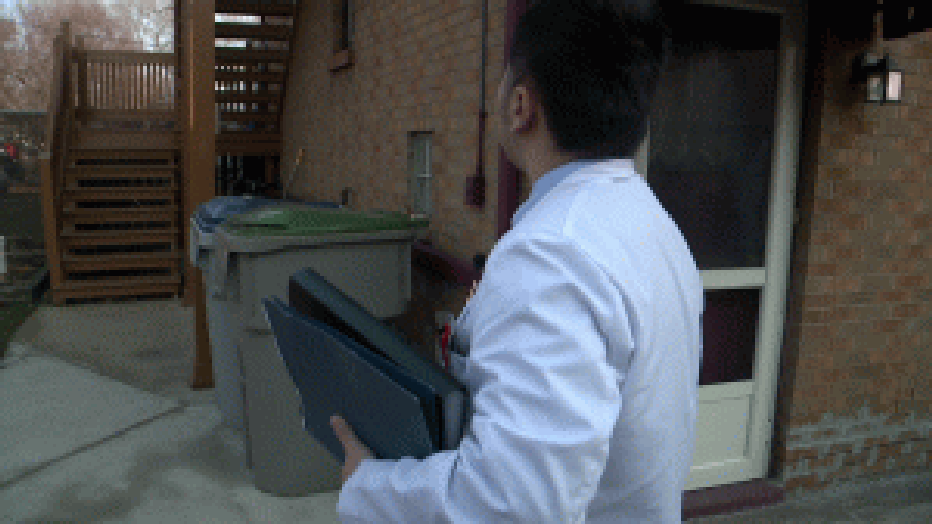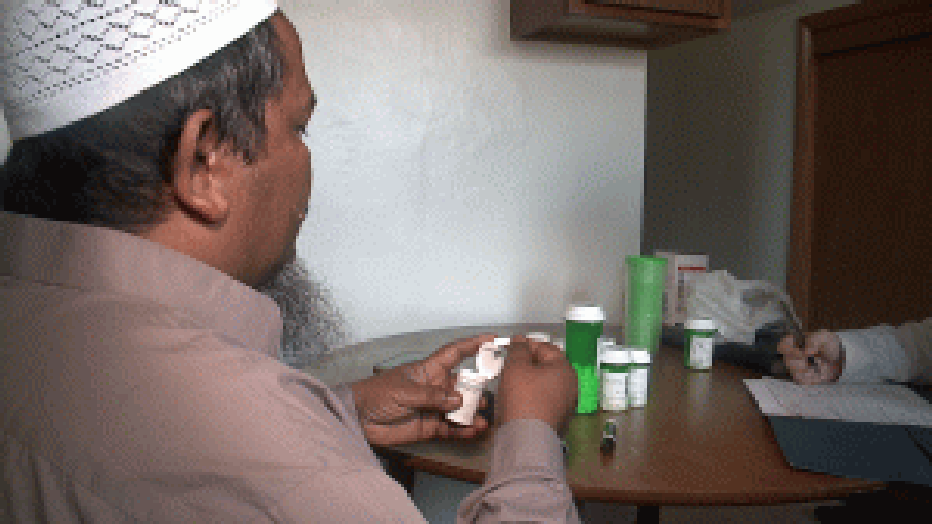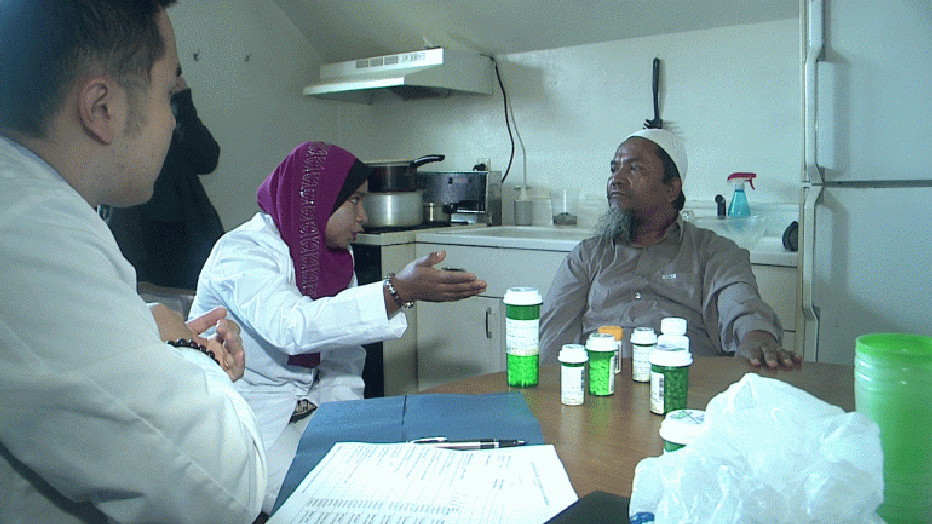'Very, very good:' Pharmacist house calls break the language barrier between patients and providers
MILWAUKEE -- Understanding medical treatment can be challenging, especially when patients and their health care providers don't speak the same language. Officials at Hayat Pharmacy in Milwaukee are working to improve language barriers with a personal touch.
In an age of cutting-edge technology and modern medicine, Kevin Xing is going old school. The Hayat pharmacist is making house calls to four or five Milwaukee patients every day.

Kevin Xing visits one of his patients at home.
The one-on-one check-ups are part of a Pharmacy Society of Wisconsin initiative to serve the under-served.
"They can identify where there are needs for medication improvement," said Kari Trapskin of the Pharmacy Society of Wisconsin. "Whether that be taking people's med adherence, problems with side effects, getting people off medication."
Patients are referred by community health advocates. Many of the Milwaukee patients are Rohingya refugees, referred to the program by an advocacy group called UniteMKE.
One of those patients is Malik Abdul, a diabetic who is still learning to speak English. Abdul takes seven pills every morning and another two every night.

Malik Abdul
A Hayat pharmacist and translator work together to manage Abdul's medication. Unlike at the pharmacy counter, there are no distractions and no rush.
"We can see what their home looks like, what their lives look like," said Xing. "What are the things that are keeping them from taking their medication, or taking their medication correctly?"
Patients don't pay a dime for the home visits. The accredited pharmacies are reimbursed by Medicaid.
"Very, very good," said Abdul.
Since 2012, pharmacists statewide have made close to 10,000 visits -- going old school to bring their patients the best care.

Pharmacy home visits connect patients with providers, breaking the language barrier.

